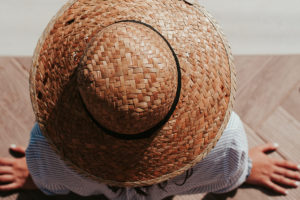Moisture Prevention for Hearing Aids

Moisture Prevention for Hearing Aids: Protecting Your Devices during the Summer Season.
The month of May introduces a well-known period of summer heat! This means that extra care should be taken to ensure your hearing devices are working to their full potential.
Although hearing aids are advertised as being “water resistant”, they are not “waterproof”. In addition to humidity that accumulates in the air, water sports often associated with the summer season can cause damage to the microphones and receivers of hearing aids, resulting in malfunction while enjoying summer activities. Some of these activities may include:
- Fishing
- Swimming
- Highly active sports producing excessive perspiration
Increased perspiration can further damage hearing aids and introduce bacteria. Additionally, swimming in salt water can bring in sodium crystals that get inside the device, causing corrosion and further damage to the tiny components that contribute to hearing aid function.
Here’s what to “dew” about it:
- Remove hearing aids prior to doing activities that risk the hearing aids being fully in water, including swimming, showering, or water rafting.
- If a device becomes wet, turn the hearing aid off. If your device has replaceable batteries, take the batteries out of the compartment.
- Remove impurities from the device as much as possible. Mud, dirt, salt water, and sand can create corrosion that remains after the devices are completely dry.
- Dry out the devices. Air-dry the devices with the battery doors open on a clean paper towel. Allow the devices to dry fully for 24 hours prior to trying to use them. Placing the hearing aids in rice is a great at-home solution to draw out excessive moisture.
- Purchase a hearing aid dryer. Currently, there are many options on the market for electronic and non-electronic devices that serve to reduce humidity damage associated with hearing aids.
- See your hearing healthcare provider should you need further support after exposure to unwanted moisture.
Lastly, avoid harsh heating elements to dry out a hearing aid. Appliances such as ovens, microwaves and hair dryers create more concerns over hearing aid function than moisture does alone.

